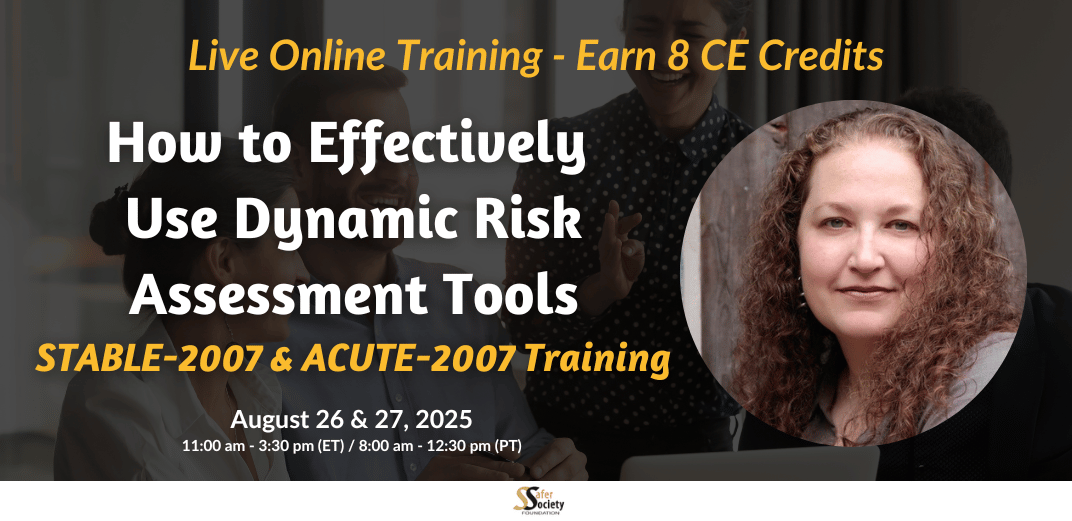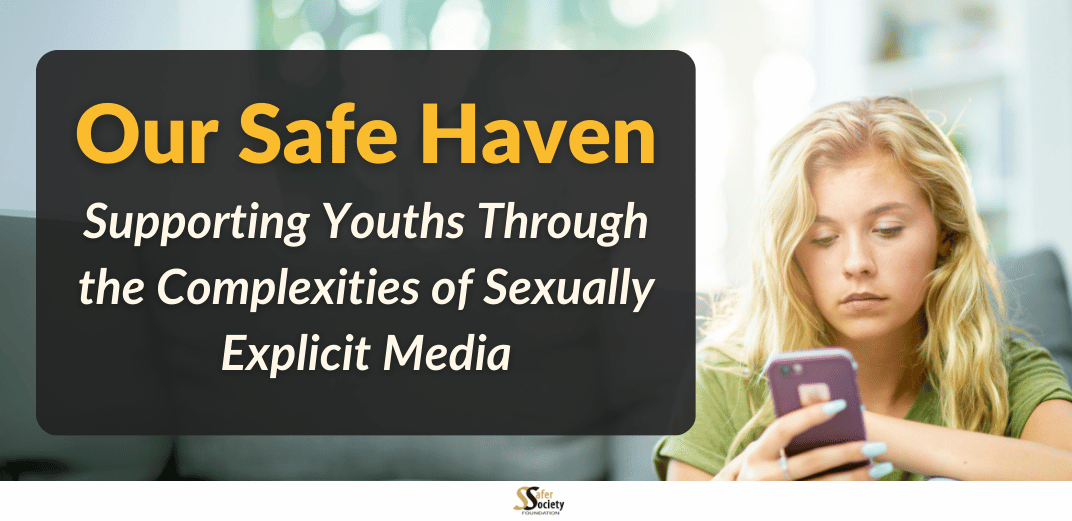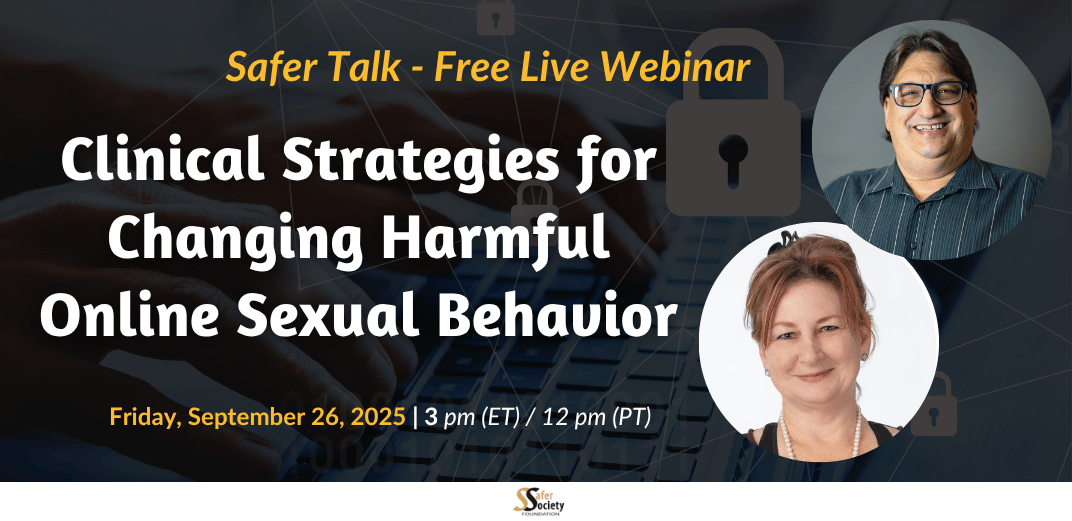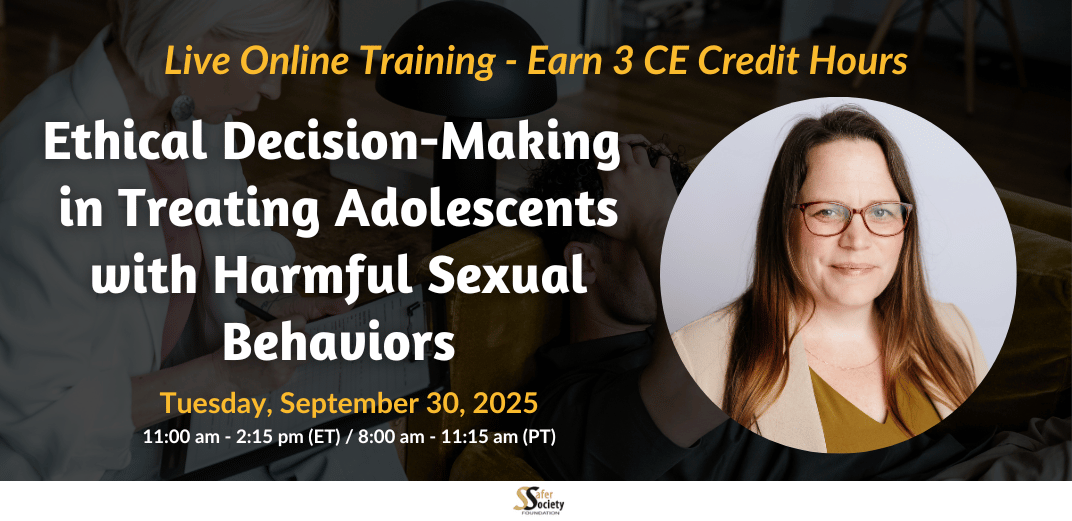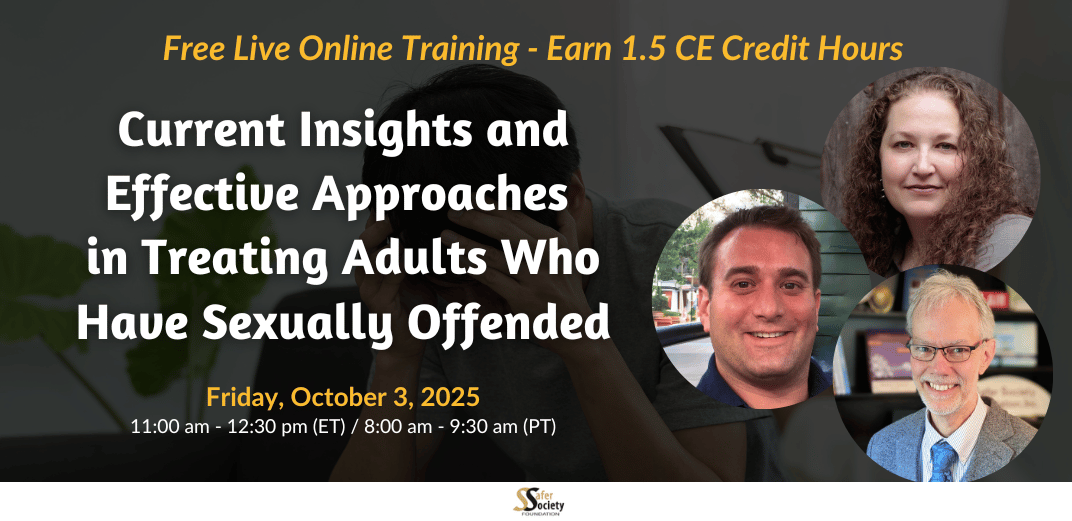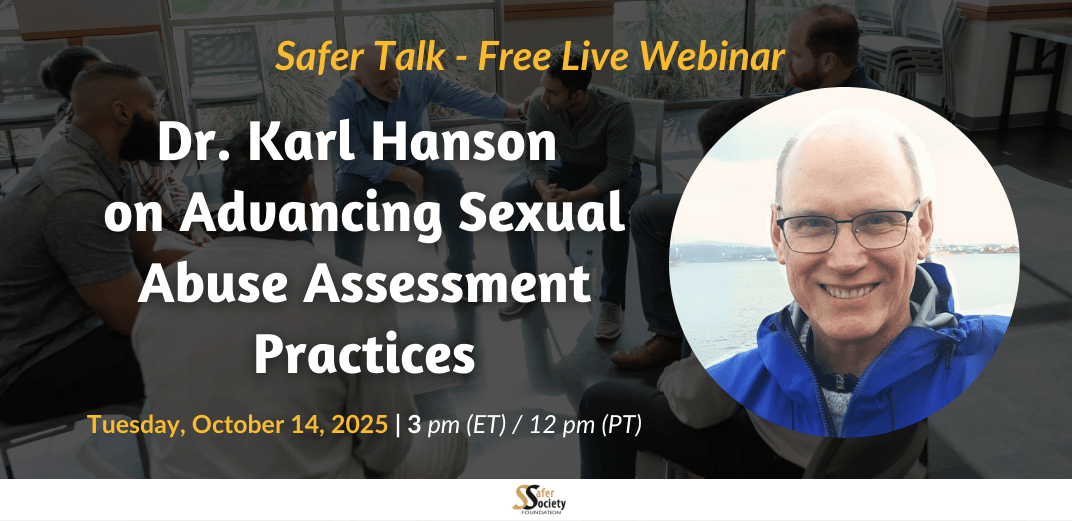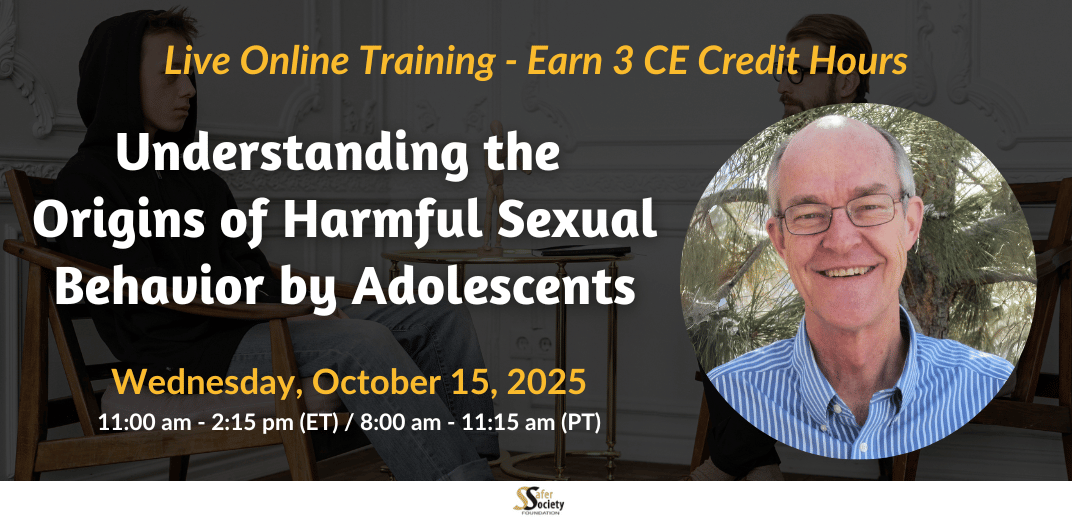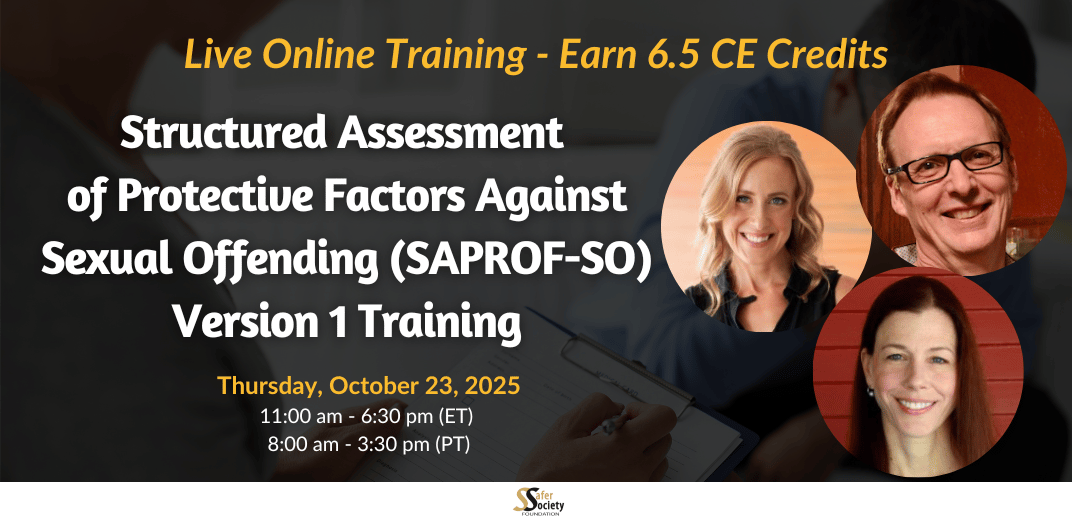
Our Safe Haven: Navigating Sexuality Education Competency
In this Our Safe Haven, we invite you to join practitioner Robin Cooper and David Prescott to explore CSE as its own kind of cultural competence, particularly for professionals working with clients who have experienced or committed acts of violence and sexual abuse. The session will begin with a focused review of a comprehensive sexuality education, evolving naturally into an engaging, attendee-driven conversation shaped by shared experiences and professional insights.

